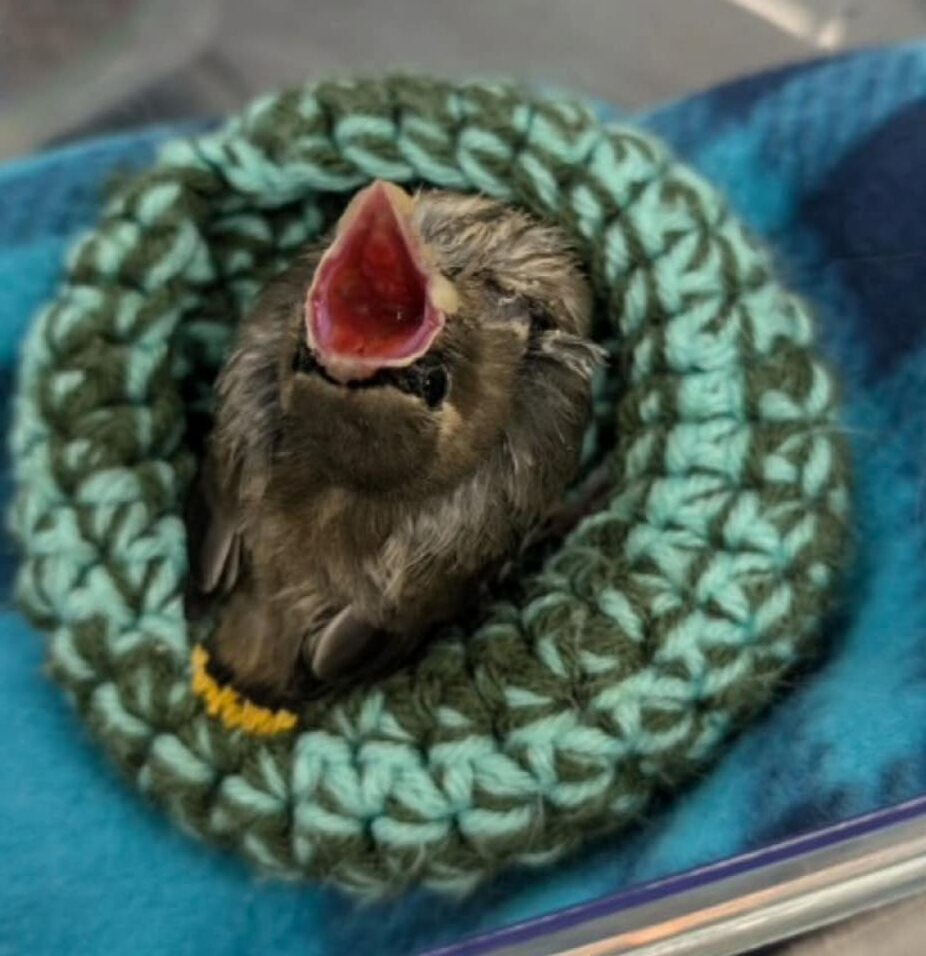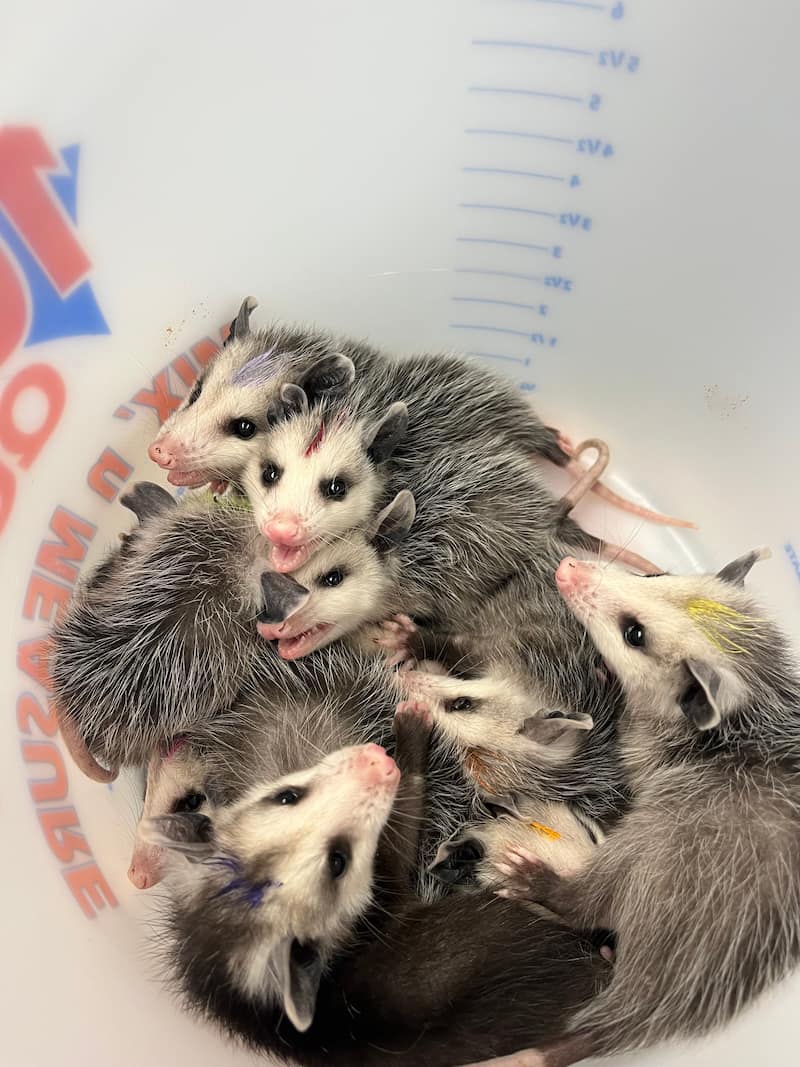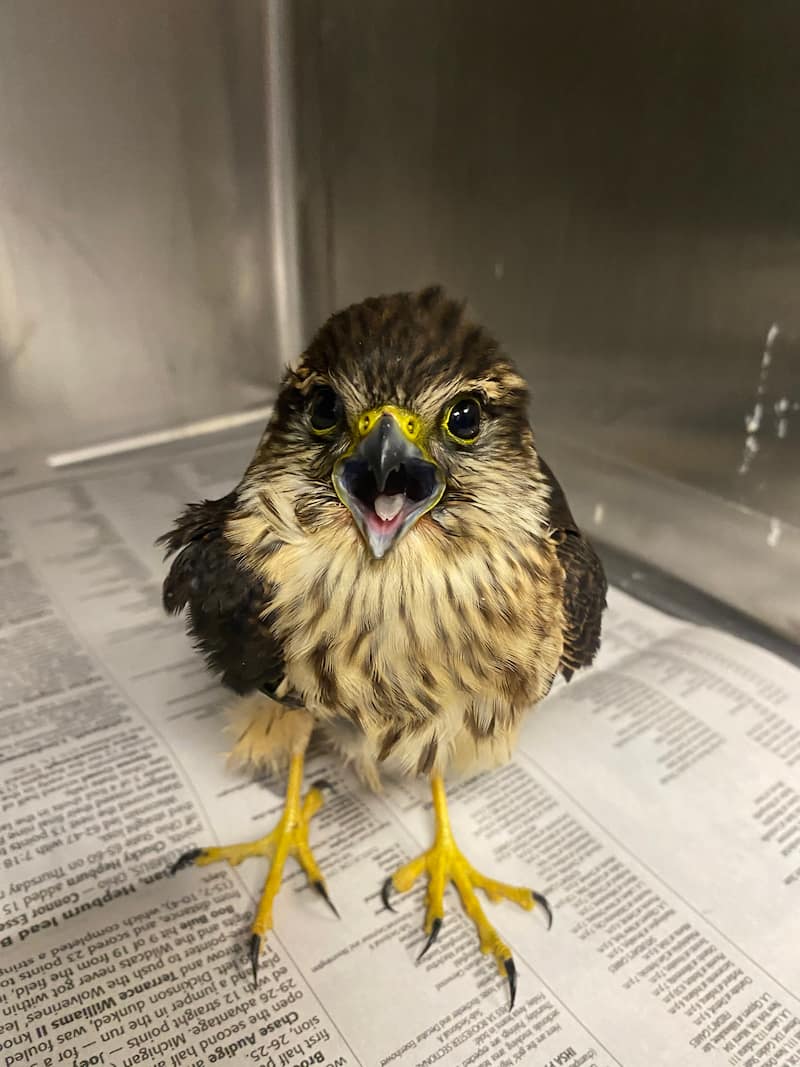As the summer draws to a close, we are overjoyed to welcome our talented students back to the clinic. The clinic has been working tirelessly to update and revamp our volunteer offerings by bringing in community members, expanding opportunities for students outside of the veterinary college, and improving the learning curriculum for veterinary students.
Students Take the Lead

Over the summer, the WMC operates much like a standard wildlife rehabilitation center with a small, dedicated staff and rotating clinical year students. As we transition into the academic year, we return to our unique management style: students take the lead. Students are not just participants, they are integral to every aspect of the clinic, from novice volunteers to upper management. This approach allows students to maximize their learning opportunities and acquire a diverse set of skills beyond wildlife medicine. Even with students at the helm, there is a robust safety net and support system of talented veterinarians, guiding and assisting students every step of the way.
Team Leader Training

As we kick off the semester, our student team leaders have been diligently training our new volunteers, ensuring they are prepared to handle their own patients and care for our diverse wildlife species. The clinic’s current functioning would not be possible without these dedicated team leaders. Their selfless commitment to improving the lives of the wildlife in our care and the learning experience of incoming students is truly commendable. During their new full-day training, team leaders worked together to set goals for themselves, their teams, and the clinic. They also defined what it means to be a team leader: support, compassion, education, teamwork, and growth. By embodying these five traits, team leaders continue to enrich the lives of WMC students and maintain the highest welfare standards for our wildlife patients.
New Orphan Feeding Team

The advent of our new orphan feeding team opens new opportunities for community members and outside students to gain experience in wildlife rehabilitation and orphan care while bringing in more hands to assist with our busy caseload. Orphan care, while highly rewarding, can be time-consuming and overwhelming if there are not enough trained volunteers to help. Our caseload has increased year after year as word of our services has spread, creating a need for more volunteers. We aim to establish the orphan feeding team as a new local volunteering staple and bring the community to us to foster a love of wildlife.
Dedication to Wildlife
As we welcome the new academic year, we are thrilled to have our dedicated students back at the clinic, assuming crucial leadership roles and contributing to the welfare of our diverse wildlife species. The commitment of our team leaders and the establishment of the orphan feeding team underscore our unwavering dedication to providing unparalleled learning opportunities for students and maintaining the highest standards of care for our wildlife patients. We are excited to continue fostering a love of wildlife in our community and look forward to the positive impact our clinic will have in the coming year, as we remain steadfast in our commitment to wildlife care and community engagement.
Written By: Tyson, Senior Manager and Class of 2026




